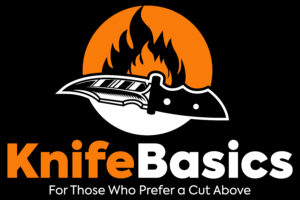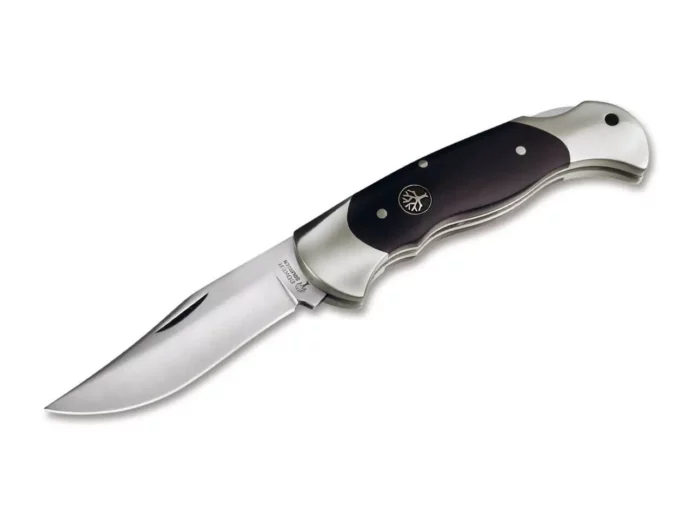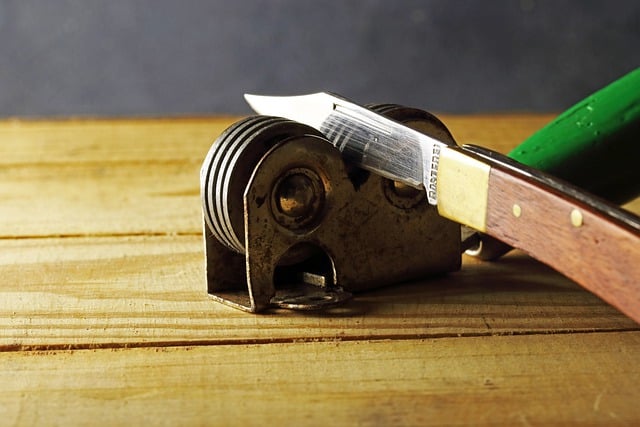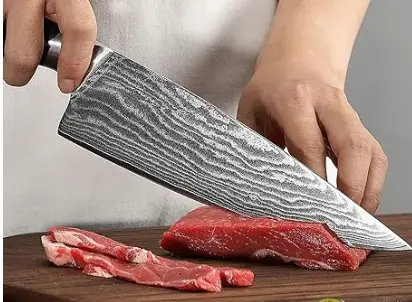What is Cronidur 30 Steel?
Cronidur 30 steel is very popular in the knife-making industry and is also used to make machines tools and blades in the food, pharmaceutical, recycling, and chemical industries. Cronidur 30 stainless steel is also sold under other names, LC200N and Z-FiNit.
Cronidur 30 Steel Composition
- Carbon C 0.30%: Increases edge retention, hardness, and tensile strength. It also improves steel resistance to wear, abrasion, and corrosion.
- Chromium Cr 15.00%: The formation of Chromium carbide Increases the hardness, tensile strength, and corrosion resistance of the blade.
- Molybdenum Mo 0.95%: It improves machinability and hardness.
- Manganese Mn 1.00%: Increases the hardenability of the steel alloy.
- Nickel Ni 0.50%: Increases hardenability and it also improves corrosion resistance.
- Nitrogen 0.50%: Improves hardness and corrosion resistance of the steel, it acts very similar to Carbon in the steel alloy.
Properties of Cronidur 30 Steel
Cronidur 30 Steel Hardness
Cronidur 30 steel has a maximum Rockwell hardness of 60 HRC, the hardness can however vary between 58HRC and 60HRC depending on the heat treatment. This range of hardness puts Cronidur 30 in the category of other low carbide steels like Sandvik 14C28N stainless steel.
Cronidur 30 Steel Wear resistance
Cronidur 30 offers good wear resistance but not as high as that offered by premium steels. The wear resistance of steel is directly proportional to the hardness. Therefore, the wear resistance of the Cronidur 30 knife you buy depends on the heat treatment achieved by the specific manufacturer.
Nevertheless, the wear resistance of Cronidur 30 stainless steel is good enough to resist everyday wear and distortion of the blade.
Cronidur 30 Steel Edge retention
The edge retention of Cronidur 30 is good and allows you to use the knife for a long period without sharpening it. This steel’s great edge retention properties are attributed to the combination of Nitrogen and Carbon in its composition.
Cronidur 30 stainless steel lacks enough carbides to give it excellent edge retention. Its edge retention is similar to most other steels like AUS 8, Nitro V, and 8Cr13MoV stainless steel.
Cronidur 30 Steel Toughness
Cronidur 30 is not very hard steel and therefore offers excellent toughness. The carbide structure of Cronidur 30 is extremely fine. The low volume of the hard brittle carbide in its alloy composition also contributes to its excellent toughness over other popular steels like S35VN, and 8Cr13MoV stainless steel
Knives made from this steel do not break, chip, or crack easily from the stress or impact of tough applications. Cronidur 30 kitchen knives handle various duties like cutting or working through bones without chipping. The toughness of Cronidur 30 stainless steel also qualifies it for the manufacturer of hunting knives.
Cronidur 30 Steel Corrosion resistance
Cronidur 30 steel is stainless steel it offers exceptional corrosion resistance. It gets its high corrosion resistance through the production process which partially replaces carbon with nitrogen elements excellent for corrosion and stain resistance.
Knives made of this steel can endure humid areas and salty water without rusting or staining. Because of this property, Cronidur 30 stainless steel is a top choice by kitchen and fishing knife manufacturers because it is rustproof.
Cronidur 30 stainless steel and Vanax steel can be used in highly corrosive environments and never rust even without proper care. However, it helps to clean and dry the knives immediately after use.
Ease of sharpening Cronidur 30 Steel
The fine grain structure of Cronidur 30 steel makes it very easy to sharpen. The blades of Cronidur 30 attain a razor-sharp edge very fast, even without superior sharpening skills or sophisticated sharpening systems.
Cronidur 30 steel is an excellent option to practice and launch your skills if you are learning sharpening skills. What’s more, this steel holds a sharp edge for a very long time. Therefore there is no pressure to keep on sharpening it after every use.
Cronidur 30 steel comparison
Cronidur 30 steel vs. N360 steel
N360 steel is the equivalent of Cronidur 30 steel. Their chemical composition is very similar, and they both contain medium amounts of Carbon and offer outstanding corrosion resistance. Also, knives made from both steels are costly. The major difference between the two steels is that N360 contains Silicone which is absent in Cronidur 30.
Cronidur 30 steel vs. H1 Steel
Both Cronidur 30 steel and H1 steel are Nitrogen steel, and some steel experts say that Cronidur 30 is an upgraded version of H1. Both steels offer excellent corrosion resistance and are easy to sharpen. On the differences, Cronidur 30 is harder than H1 and therefore outshines it in edge retention and wear resistance. On the other hand, H1 beats its counterpart in toughness.
Cronidur 30 vs 440C
Cronidur 30 steel is better than 440C steel in toughness and corrosion resistance. The production method of Cronidur 30 stainless steel enables it to achieve a very fine carbide microstructure which greatly boosts its toughness performance over other conventionally produced steels.
Cronidur 30 stainless steel addition of Nitrogen in its alloy composition enables it to achieve the best corrosion resistance in knife steels. Its corrosion resistance is matched by the likes Vanax steel and M390 stainless steel.
Due to the high amount of carbon in 440C knife steel, it is able to achieve a higher Rockwell hardness than Cronidur 30 knife steel. This enables 440C steel knives to achieve better edge retention and wear resistance compared to Cronidur 30 knives.
Cronidur 30 vs N690
Cronidur 30 steel is better than N690 steel in corrosion resistance, toughness, and ease of sharpening. The addition of Nitrogen in Cronidur 30 knife steel greatly boosts its corrosion resistance property, while the production process boosts its toughness over N690.
Cronidur 30 also beats Bohler N690 steel in ease of sharpening due to its fine microstructure that is easy to sharpen. N690 steel is better than Cronidur 30 in edge retention as it contains a higher percentage of carbides that are excellent for edge retention and wear resistance.
Cronidur 30 vs M390
M90 steel is considered premium steel and is better than Cronidur 30 steel in edge retention and wear resistance. They both offer a similar level of corrosion resistance despite the difference in the production process and alloying elements in their composition.
Bohler M390 alloy composition contains high content of chromium elements which greatly boost its corrosion resistance and also contributes to a high number of Chromium carbides. These chromium carbides provide M390 knife steel with a higher Rockwell hardness and also better wear resistance.
On the other hand, Cronidur 30 stainless steel offers more than twice the toughness of M390 steel. Its alloy composition and production process enables it to form a very fine microstructure which is excellent for toughness. Cronidur 30 steel knives can thus withstand high-impact toughness applications without chipping and cracking.



